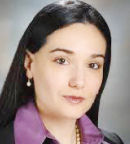Neoadjuvant immunotherapy had encouraging activity and demonstrated favorable safety in patients with resectable early-stage non–small cell lung cancer (NSCLC), according to two studies presented at the 2019 ASCO Annual Meeting.1,2 This approach has the potential to boost the survival rate in resectable early-stage NSCLC, according to experts.
In an interim analysis of the Lung Cancer Mutation Consortium’s LCMC3 study, neoadjuvant monotherapy with the programmed cell death ligand 1 (PD-L1) inhibitor atezolizumab led to a major pathologic response in 19% of patients as well as a pathologic complete response in 5% of patients who went on to complete surgical resection.1 The checkpoint inhibitor was well tolerated. A placebo-controlled phase III trial is currently testing this agent in combination with chemotherapy in early-stage NSCLC.
In the NEOSTAR study, both monotherapy with the programmed cell death protein 1 inhibitor nivolumab and the combination of nivolumab plus ipilimumab (a cytotoxic T-lymphocyte–associated protein 4 inhibitor) achieved favorable results as neoadjuvant therapy.2 The rate of major pathologic response (≤ 10% viable tumor in the resected tumor specimen) was 17% with monotherapy and 33% with the combination in the intent-to-treat population. Although the findings are encouraging, additional research is needed before neoadjuvant immunotherapy is accepted as a standard of care in this setting, according to the speakers who presented these studies.
LCMC3 Study
“Small pilot studies suggest there may be a benefit for neoadjuvant immunotherapy in treatment-naive patients with potentially resectable, early-stage NSCLC,” said lead author David J. Kwiatkowski, MD, PhD, Professor of Medicine at Harvard Medical School and Senior Physician at Dana-Farber/Brigham and Women’s Hospital, Boston. “Immune checkpoint inhibitor therapy is included as a standard of care for patients with metastatic lung cancer, and this study suggests that it may also have benefit for earlier-stage disease when combined with surgery.”

David J. Kwiatkowski, MD, PhD
LCMC3 is currently enrolling patients with stage IB to IIIB NSCLC with a planned goal of 180. At the ASCO Annual Meeting, Dr. Kwiatkowski presented an interim analysis of 101 patients treated with two cycles of atezolizumab prior to surgery and up to 12 months of postoperative atezolizumab. The primary endpoint of the study is major pathologic response, defined as no more than 10% viable tumor cells in the tumor bed at surgical resection. This endpoint has been used for some time in neoadjuvant chemotherapy trials for potentially resectable NSCLC and has been adapted for neoadjuvant immunotherapy trials.
Patients enrolled in the trial were typical for those with NSCLC: median age was 65 years, one-third had squamous histology, 90% were current or former smokers, and 46% had either stage IIIA or IIIB disease based on presurgical staging. About 50% of patients were negative for PD-L1 staining, 7 patients were EGFR-positive, and 1 patient had an ALK translocation.
The primary efficacy population included 77 patients who underwent surgery and had no known molecular drivers of disease. Among them, 19% had a major pathologic response, 5% had a pathologic complete response, and 49% had less than 50% viable tumor cells in the tumor bed.
The researchers were unable to identify strong biomarkers of response. PD-L1 expression was significantly associated with response, but some patients whose tumors had no PD-L1 expression had major pathologic responses.Neither tumor mutational burden nor mutations in specific genes (eg, KRAS) were associated with major pathologic response in the subset of 40 patients for whom such data were available.
The safety analysis included all 101 patients, of whom 97% experienced an adverse event. Serious treatment-related adverse events (grade 3 or 4) occurred in 6% of patients. Two deaths were reported; neither was deemed treatment-related. Ten subjects had progressive disease and did not have surgery or were found to be inoperable at exploration; all had pretreatment stage IIIA or IIIB disease.All patients with stage I or II disease had surgical resection.
NEOSTAR Study
“More than 50% of patients with stage I to III resectable -NSCLC will relapse, and postoperative chemotherapy is associated with an absolute 5-year overall survival benefit of only approximately 5% vs surgery alone,” explained NEOSTAR lead author Tina Cascone, MD, PhD, Assistant Professor at The University of Texas MD Anderson Cancer Center, Houston.

Tina Cascone, MD, PhD
NEOSTAR was a multiarm phase II study of checkpoint blockade for untreated stage I to IIIA (N2 single station) NSCLC amenable to surgical resection. Patients in arm A were treated with nivolumab, and those in arm B received the combination of nivolumab plus ipilimumab, based on preclinical studies showing synergy for this combination. All patients were scheduled for surgery within 3 to 6 weeks of the last dose of neoadjuvant immunotherapy. The primary endpoint of the study was the major pathologic response rate, defined as ≤ 10% viable tumor in resected tumor specimens after neoadjuvant therapy. According to the trial design, if six or more major pathologic responses were observed in any of the arms, the specific treatment would be considered promising.
Dr. Cascone presented the final results of NEOSTAR at the ASCO meeting. Of 53 patients screened, 44 were assigned and treated; 39 underwent surgery (including 2 who had surgery off of the trial).
The mean age was 65.6 years; most patients were male, Caucasian, and had a history of smoking. Two-thirds had adenocarcinoma, 98% had invasive mediastinal staging, and 93% completed planned neoadjuvant immunotherapy. The resectability rate was 89%.
Five patients did not undergo curative surgery. “Twenty-two percent of surgeries were delayed beyond 42 days. The surgical outcomes will be reported at upcoming meetings,” Dr. Cascone said.
NEOADJUVANT IMMUNOTHERAPY IN NSCLC
- Two small studies appear to support the use of neoadjuvant immunotherapy in early-stage non–small cell lung cancer that is potentially resectable.
- Combination immunotherapy with nivolumab/ipilimumab had higher activity than single-agent immunotherapy in the two studies.
- Biomarkers for treatment selection with this approach are lacking.
In the intent-to-treat analysis, the major pathologic response rate, including the complete pathologic responses, was 17% in the nivolu-mab arm and 33% for the combination immunotherapy arm. Seven patients achieved major pathologic response in the nivolumab-plus-ipilimumab arm (33%), and therefore this regimen met the prespecified boundary to be considered promising for further evaluation.
Dr. Cascone noted that 11% of patients had apparent radiographic nodal progression after neoadjuvant immune checkpoint inhibitor therapy. “These patients had evidence of granulomas at invasive pathologic evaluation—a phenomenon we called nodal immune flare. Awareness of this phenomenon is of critical importance, as curative surgery may be avoided if the clinician fails to distinguish nodal immune flare from disease progression” she advised.
Most treatment-related adverse events were grade 1 or 2. The most common treatment-related adverse events were fatigue in the nivolumab monotherapy arm (35%) and rash in the combination immunotherapy arm (52%). Grade 3 to 5 treatment-related adverse events included hypermagnesemia, hypoxia, pneumonitis, and pneumonia (4% each) in the nivolumab arm, and diarrhea and hyponatremia (4% each) in the combination immunotherapy arm.
“Preliminary analysis suggests that elevated baseline PD-L1 may be associated with radiographic responses and greater tumor regression,” Dr. Cascone said. ■
DISCLOSURE: Dr. Kwiatkowski is a consultant/advisor for Genentech/Roche and has received research funding from AADi, Revolution Medicines, and Genentech/Roche. Dr. Cascone has received honoraria from the Society for Immunotherapy of Cancer and Bristol-Myers Squibb; is a consultant/advisor for MedImmune; and has received institutional research funding from Bristol-Myers Squibb, Boehringer -Ingelheim, and MedImmune.
REFERENCES
1. Kwiatkowski DJ, et al: Neoadjuvant atezolizumab in resectable non-small cell lung cancer. 2019 ASCO Annual Meeting. Abstract 8503. Presented June 1, 2019.
2. Cascone T, et al: NEOSTAR Study Group: Neoadjuvant nivolumab or nivolumab plus ipilimumab for resectable non-small cell lung cancer. 2019 ASCO Annual Meeting. Abstract 8504. Presented June 1, 2019.


